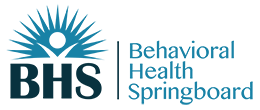
| Date | Session Title |
|---|---|
| November 17, 2020 | Strategies for Success for Youth with Complex Needs and the NC Education System |
| December 15, 2020 | Case Consultation |
| January 26, 2021 | The Systematic Evaluation and Management of Crisis Level Complex Behavioral Challenges in the Context of IDD |
| February 23, 2021 | Case Consultation |
| March 23, 2021 | Support Transitions in Care in IDD |
| April 27, 2021 | Case Consultation |
| May 25, 2021 | Support Siblings of Individuals with IDD |
| June 22, 2021 | Case Consultation |
Please visit the training details tab for information about the consultation meetings topics.
Modality:
Each session will be 1.5 hours in length. Participants must complete the entire 1.5 hour session to receive credit. This is a live interactive virtual training via zoom video conferencing platform.
Registration: Registration is free, but participants must pre-register for this training. We will confirm your registration by email.
This training is funded by the NC Department of Health and Human Services, Division of Mental Health, Developmental Disabilities, and Substance Use Services, as a project of the Children with Complex Needs statewide administration.
Target Audience:
State staff, LME-MCO staff, providers of both MH and IDD services, and other stakeholders in North Carolina; licensed clinicians and non-licensed providers who provide direct support services; psychologists that provide evaluations and other clinicians providing comprehensive clinical assessments; as well as other stakeholders to include social services, juvenile justice, and others.
Inclement Weather Policy:
Any announcements regarding changes to the schedule due to inclement weather will be posted on https://bhs.unc.edu. Registered participants will also be notified by email.
ADA Statement:
If you require any of the auxiliary aids or services identified in the Americans with Disabilities Act in order to participate in this program, please call us at (919) 843-6083 no later than ten business days before the program.
Contact for Questions:
For questions, further information, or concerns, contact bhs-support@unc.edu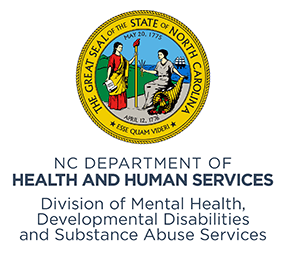
Or call (919) 843-6083
Confirmation Notices and Certificates of Completion:
We will confirm your registration by email. Successful completion includes full attendance in the session. Within 7 days of the conclusion of the event, you will receive an email notifying you that the evaluations and certificates are ready. The email will include a link to https://bhs.unc.edu where you can login using the username and password you chose at registration. Once you have logged in, you will see the course name on the left side. After clicking on the link, you will be taken to another page where you can click the link to the event evaluation. Once you have completed and submitted your evaluation, you can click on the link to access the Certificate of Completion. Your Certificate will open in a new window as a pdf file for you to save or print.
Implementation Supports in Best Practices & Case Consultation
The North Carolina Division of Mental Health, Developmental Disabilities, and Substance Abuse Services is sponsoring a series of webinars to support workforce development for systems that interact with, support, and provide treatment for persons who have mental illness co-occurring with an intellectual/developmental disability. Created in partnership with The University of North Carolina at Chapel Hill’s Carolina Institute for Developmental Disabilities at the School of Medicine, the training series will provide a combination of 4 topic-specific didactic webinars alternating with 4 interactive case consultations sessions covering the most common challenges in providing effective care to this population.
| Date | Topic | Time |
|---|---|---|
| November 17, 2020 | Strategies for Success for Youth With Complex Needs and the NC Education System | 10am - 11:30am |
| December 15, 2020 | Case Consultation | 10am - 11:30am |
| January 26, 2021 | The Systematic Evaluation and Management of Crisis Level Complex Behavioral Challenges in the context of IDD | 10am - 11:30am |
| February 23, 2021 | Case Consultation | 10am - 11:30am |
| March 23, 2021 | Support Transitions in Care in IDD | 10am - 11:30am |
| April 27, 2021 | Case Consultation | 10am - 11:30am |
| May 25, 2021 | Support Siblings of Individuals with IDD | 10am - 11:30am |
| June 22, 2021 | Case Consultation | 10am - 11:30am |
Strategies for Success for Youth with Complex Needs and the NC Education System (11/17/20)
This session will provide an overview of what is working to help young people with complex needs to be successful and remain in school.
Learning Objectives:
Participants will be able to:
- List common challenges in the education setting;
- Identify interventions in the school setting that are helpful in facilitating learning and decreasing undesirable behaviors and crisis;
- Describe school/parent engagement that leads to a successful learning environment for the child;
- Identify school personnel and key behavioral health staff (within and outside of the school) that need to be a part of the IEP process or other school planning.
Speaker: Dr. Whitney Griffin
Case Consultation (12/15/20)
The Case will be presented, participants will be asked to engage in a discussion of the case in terms of directed questions about other information that would be desired, and case facilitators/experts will also discuss what further information would be desired and why. Recommendations will be made regarding the case by both the participants and the experts. Discussion points will emphasize bio-psycho-social elements.
Learning Objectives:
Participants will be able to:
- Identify, through case presentation, the pertinent clinical information necessary to formulate a comprehensive treatment approach;
- Apply a bio-psycho-social framework to case conceptualization;
- Critically examine the systems and clinical challenges and opportunities in working with children and youth with complex needs.
Speaker: Dr. Jean Mankowski
The Systematic Evaluation and Management of Crisis Level Complex Behavioral Challenges in the Context of IDD (1/26/21)
This session will provide an overview of complex behavioral presentations in the IDD setting, the drivers of these presentations, and the systematic evaluation of drivers. Rational and pragmatic approaches to intervention, post-crisis debriefing, and a review of possible crisis resources will be presented.
Learning Objectives:
Participants will be able to:
- Identify common drivers of complex behavioral presentations in IDD;
- Demonstrate an understanding of the resources to support individuals in crisis;
- List strategies to mitigate crisis;
- Describe the important elements to include in post-crisis debriefing;
- Implement lessons from debriefing into future crisis planning.
Speaker: Dr. Rob Christian
Case Consultation (2/23/21)
The Case will be presented, participants will be asked to engage in a discussion of the case in terms of directed questions about other information that would be desired, and case facilitators/experts will also discuss what further information would be desired and why. Recommendations will be made regarding the case by both the participants and the experts. Discussion points will emphasize bio-psycho-social elements.
Learning Objectives:
Participants will be able to:
- Identify, through case presentation, the pertinent clinical information necessary to formulate a comprehensive treatment approach;
- Apply a bio-psycho-social framework to case conceptualization;
- Critically examine the systems and clinical challenges and opportunities in working with children and youth with complex needs.
Speaker: Dr. Rob Christian
Support Transitions in Care in IDD (3/23/21)
This session will review of the key areas of transition from pediatric to adult care in the context of IDD. Medical and other areas of transition are inherently more complex and challenged by resource limitations for individuals with IDD. This talk will present a structure to help optimize transitions with emphasis on healthcare and utilizing a team approach.
Learning Objectives:
Participants will be able to:
- List the key areas of transitions, including housing, employment, and advanced education;
- Describe the risks of an unplanned transition;
- Identify key components of a transition plan and various tools that can be used for this effort;
- Review options for guardianship;
- Discuss transitional needs for behavioral health treatment.
Speaker: Dr. Diana Cejas
Case Consultation (4/27/21)
The Case will be presented, participants will be asked to engage in a discussion of the case in terms of directed questions about other information that would be desired, and case facilitators/experts will also discuss what further information would be desired and why. Recommendations will be made regarding the case by both the participants and the experts. Discussion points will emphasize bio-psycho-social elements.
Learning Objectives:
Participants will be able to:
- Identify, through case presentation, the pertinent clinical information necessary to formulate a comprehensive treatment approach;
- Apply a bio-psycho-social framework to case conceptualization;
- Critically examine the systems and clinical challenges and opportunities in working with children and youth with complex needs.
Speaker: Dr. Rob Christian
Supporting Siblings of Individuals with Complex MH and I/DD (5/25/21)
This presentation will discuss the various emotional challenges of the sibling of a family member of child with complex needs. Additionally, the special role of this sibling in the family dynamic will be discussed. Various models of sibling support will be discussed. Finally, resources and toolkits for assisting in the development of sibling specific mental health and support resources will be presented.
Learning Objectives:
Participants will be able to:
- Describe the challenges, risks, and special vulnerabilities of the sibling of a family member with IDD;
- Identify the various approaches and models to providing sibling support.
Speaker: Morgan Parlier, MSW, LCSW
Case Consultation (6/22/21)
The Case will be presented, participants will be asked to engage in a discussion of the case in terms of directed questions about other information that would be desired, and case facilitators/experts will also discuss what further information would be desired and why. Recommendations will be made regarding the case by both the participants and the experts. Discussion points will emphasize bio-psycho-social elements.
Learning Objectives:
Participants will be able to:
- Identify, through case presentation, the pertinent clinical information necessary to formulate a comprehensive treatment approach;
- Apply a bio-psycho-social framework to case conceptualization;
- Critically examine the systems and clinical challenges and opportunities in working with children and youth with complex needs.
Speaker: Dr. Jean Mankowski
Agenda
10:00-10:05am – Introductions of presenters
10:05-11:40am – Case presentation/Lecture of material
10:40-11:25am – Discussion questions and interaction
11:25-11:30am – Closing comments
Implementation Supports in Best Practices & Case Consultation
Participants must be present and complete the entire training in order to receive credit. No partial credit will be given.
The University of North Carolina at Chapel Hill School of Social Work has been approved by NBCC as an Approved Continuing Education Provider, ACEP No. 6642. Programs that do not qualify for NBCC credit are clearly identified. The University of North Carolina at Chapel Hill School of Social Work is solely responsible for all aspects of the programs. Each successfully completed webinar qualifies for 1.5 contact hours.
Each course has been submitted the North Carolina Addictions Specialist Professional Practice Board for 1.5 hours of General Skill Building credit for Substance Abuse Professionals.
Dr. Whitney Griffin, PhD
 Dr. Whitney Griffin, PhD. is a graduate of the North Carolina State University School Psychology program. She additionally obtained an M.Ed in Special Education with emphasis on low incidence disabilities from East Carolina University. Dr. Griffin also focused her undergraduate education at UNC-Greensboro on Deaf Education. Dr. Griffin has extensive experience as both an educator and clinician in the NC Public Schools. Dr. Griffin completed a LEND training fellowship at the Carolina Institute for Developmental Disabilities (CIDD) and she is now a faculty member in the NC LEND program where she serves as the program’s discipline lead in education. Dr. Griffin additionally is a Clinical Assistant Professor at The Psychoeducational Clinic at North Carolina State University.
Dr. Whitney Griffin, PhD. is a graduate of the North Carolina State University School Psychology program. She additionally obtained an M.Ed in Special Education with emphasis on low incidence disabilities from East Carolina University. Dr. Griffin also focused her undergraduate education at UNC-Greensboro on Deaf Education. Dr. Griffin has extensive experience as both an educator and clinician in the NC Public Schools. Dr. Griffin completed a LEND training fellowship at the Carolina Institute for Developmental Disabilities (CIDD) and she is now a faculty member in the NC LEND program where she serves as the program’s discipline lead in education. Dr. Griffin additionally is a Clinical Assistant Professor at The Psychoeducational Clinic at North Carolina State University.
Dr. Jean Mankowski
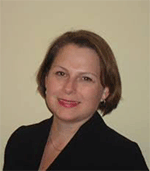 Dr. Mankowski, a psychologist and Clinical Assistant Professor at the Carolina Institute for Developmental Disabilities (CIDD), is also the director of training for the North Carolina LEND grant. Clinical duties include psychological or interdisciplinary evaluations of individuals with or at risk for developmental disabilities. She is the psychologist for interdisciplinary Hearing and Development Team, specializing in children who are deaf and hard of hearing and for the Behavior Medicine Clinic, specializing in individuals with severe behavioral or psychiatric difficulties in the context of neurodevelopmental disability. Dr. Mankowski also provides neuropsychological consultation and diagnostic evaluations for The Whitaker Psychiatric Residential Treatment Facility in Butner, North Carolina and psychological consultation to the Wright School in Durham, NC. Her teaching responsibilities include clinical training of psychology graduate students, interns, and postdoctoral fellows, facilitating an interdisciplinary graduate level course Developmental Disabilities Across the Lifespan: A Problem Based Learning Approach, and curriculum development and implementation for North Carolina’s Leadership Education in Neurodevelopmental and Related Disabilities (LEND) Grant.
Dr. Mankowski, a psychologist and Clinical Assistant Professor at the Carolina Institute for Developmental Disabilities (CIDD), is also the director of training for the North Carolina LEND grant. Clinical duties include psychological or interdisciplinary evaluations of individuals with or at risk for developmental disabilities. She is the psychologist for interdisciplinary Hearing and Development Team, specializing in children who are deaf and hard of hearing and for the Behavior Medicine Clinic, specializing in individuals with severe behavioral or psychiatric difficulties in the context of neurodevelopmental disability. Dr. Mankowski also provides neuropsychological consultation and diagnostic evaluations for The Whitaker Psychiatric Residential Treatment Facility in Butner, North Carolina and psychological consultation to the Wright School in Durham, NC. Her teaching responsibilities include clinical training of psychology graduate students, interns, and postdoctoral fellows, facilitating an interdisciplinary graduate level course Developmental Disabilities Across the Lifespan: A Problem Based Learning Approach, and curriculum development and implementation for North Carolina’s Leadership Education in Neurodevelopmental and Related Disabilities (LEND) Grant.
Dr. Robert Christian
 Dr. Robert Christian is a graduate of the UNC School of Medicine. He did his combined residency training in general pediatrics, adult psychiatry, and child and adolescent psychiatry at the Brown University Triple Board Program in Providence, RI. Dr. Christian joined the Carolina Institute for Developmental Disabilities at The University of North Carolina School of Medicine in 2009. His clinical work focuses on the treatment of individual with Intellectual and Developmental Disabilities and complex behavioral/emotional presentations. Dr. Christian is also associate director of the North Carolina Leadership Education in Neurodevelopmental and related Disorders (LEND) Program at CIDD. His research interests involve health services in the IDD realm. Dr. Christian serves on several state and regional advisory boards related to the IDD realm.
Dr. Robert Christian is a graduate of the UNC School of Medicine. He did his combined residency training in general pediatrics, adult psychiatry, and child and adolescent psychiatry at the Brown University Triple Board Program in Providence, RI. Dr. Christian joined the Carolina Institute for Developmental Disabilities at The University of North Carolina School of Medicine in 2009. His clinical work focuses on the treatment of individual with Intellectual and Developmental Disabilities and complex behavioral/emotional presentations. Dr. Christian is also associate director of the North Carolina Leadership Education in Neurodevelopmental and related Disorders (LEND) Program at CIDD. His research interests involve health services in the IDD realm. Dr. Christian serves on several state and regional advisory boards related to the IDD realm.
Dr. Diana Cejas
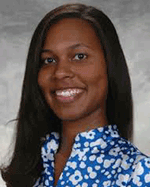 Dr. Cejas completed her medical training at Howard University in Washington, D.C. She also holds a Master of Public Health from The George Washington University. Dr. Cejas did her combined residency training in general pediatrics and pediatric neurology at Tulane University and The University of Chicago Child Neurology Program where Dr. Cejas served as Chief Resident. While in Chicago, Dr. Cejas completed a Leadership Education in Neurodevelopmental and related Disabilities (LEND) Fellowship. She is now an assistant professor in the Department of Neurology at UNC Chapel Hill and a Faculty Member at the Carolina Institute for Developmental Disabilities (CIDD) at UNC Chapel Hill. Dr. Cejas has long a held and a clinical and research interest on transitions in care. She has studied, written about, and given numerous talks on this subject as it relates to Intellectual and Developmental Disabilities (IDD).
Dr. Cejas completed her medical training at Howard University in Washington, D.C. She also holds a Master of Public Health from The George Washington University. Dr. Cejas did her combined residency training in general pediatrics and pediatric neurology at Tulane University and The University of Chicago Child Neurology Program where Dr. Cejas served as Chief Resident. While in Chicago, Dr. Cejas completed a Leadership Education in Neurodevelopmental and related Disabilities (LEND) Fellowship. She is now an assistant professor in the Department of Neurology at UNC Chapel Hill and a Faculty Member at the Carolina Institute for Developmental Disabilities (CIDD) at UNC Chapel Hill. Dr. Cejas has long a held and a clinical and research interest on transitions in care. She has studied, written about, and given numerous talks on this subject as it relates to Intellectual and Developmental Disabilities (IDD).
Morgan Parlier
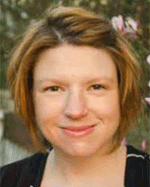 Morgan Parlier, MSW, LCSW joined the CIDD faculty in 2014. She completed her graduate degree through the Joint Master of Social Work program through UNCG and NCA&TSU in 2003. Morgan has more than a decade of experience as a research coordinator for several NIH funded projects exploring the genetic underpinnings of ASD under the supervision of Joe Piven, MD. She has since amassed a decade of experience providing clinical services to individuals with developmental disabilities and their families through individual and group counseling, parent support and resource navigation, psychoeducational groups, and interdisciplinary clinics at CIDD. Her clinical interests include adolescents, adults and older adults with I/DD and their families/caregivers, sexual health equity, and self-advocacy.
Morgan Parlier, MSW, LCSW joined the CIDD faculty in 2014. She completed her graduate degree through the Joint Master of Social Work program through UNCG and NCA&TSU in 2003. Morgan has more than a decade of experience as a research coordinator for several NIH funded projects exploring the genetic underpinnings of ASD under the supervision of Joe Piven, MD. She has since amassed a decade of experience providing clinical services to individuals with developmental disabilities and their families through individual and group counseling, parent support and resource navigation, psychoeducational groups, and interdisciplinary clinics at CIDD. Her clinical interests include adolescents, adults and older adults with I/DD and their families/caregivers, sexual health equity, and self-advocacy.
